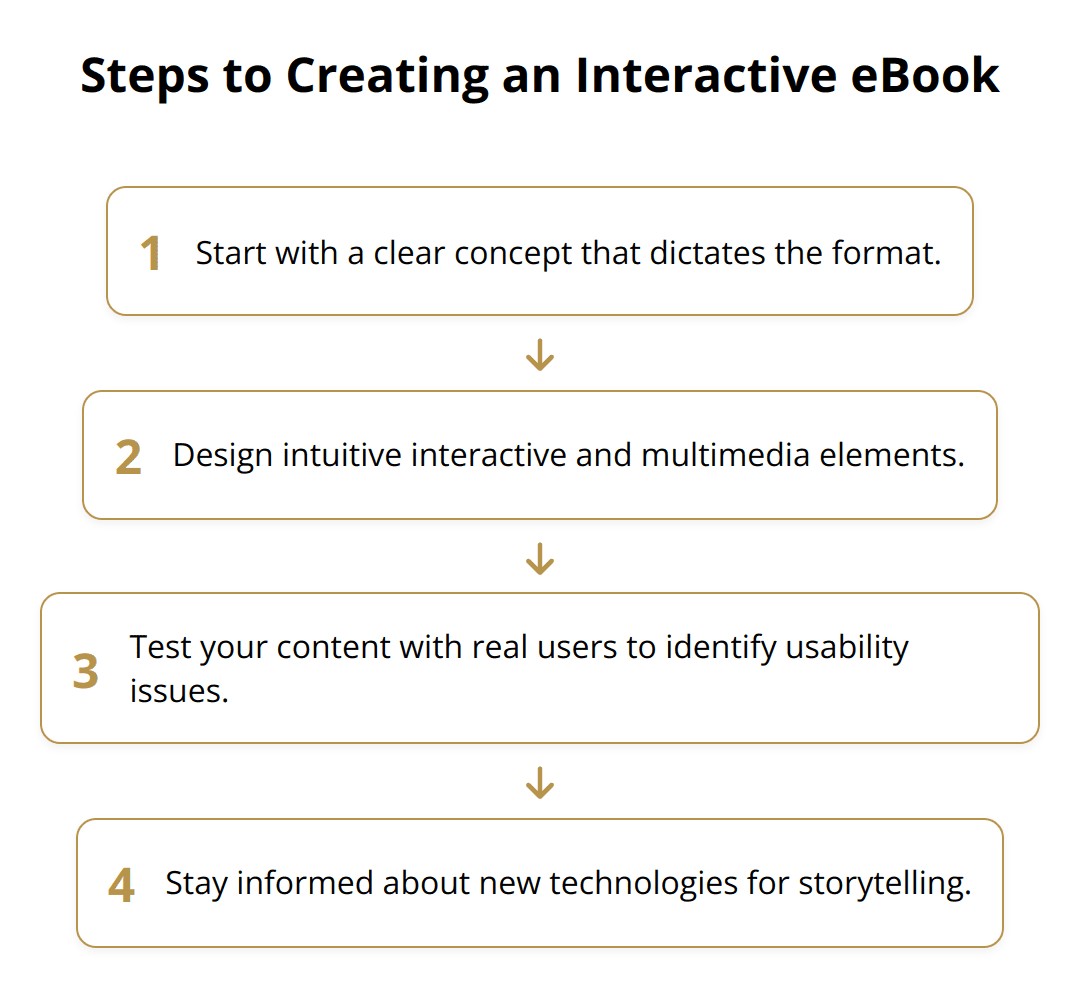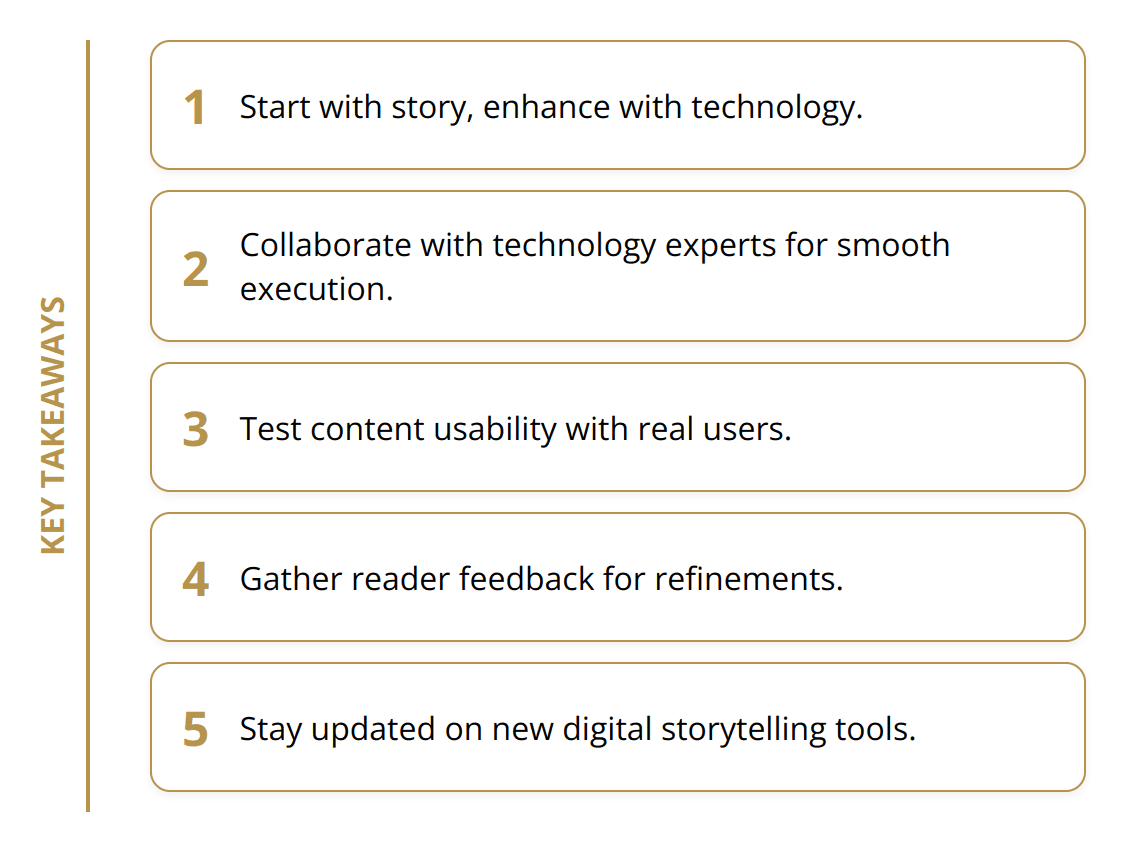The landscape of publishing is rapidly evolving, marking an exciting era for both authors and readers. At Beverly Hills Publishing, we recognize the growing interest in experimental publishing formats that push the boundaries of traditional storytelling. These innovative approaches offer unique opportunities for engagement and immersion.
Understanding these developments is essential for anyone looking to stay ahead in the dynamic world of publishing.
Exploring Experimental Publishing Formats
The shift from traditional to experimental publishing formats is not just a trend; it’s a revolution in how stories are told and consumed. Experimental publishing takes the essence of storytelling beyond the confines of printed pages or even eBooks, leveraging technology to create immersive experiences. This transition is powered by the desire of authors and publishers to connect with audiences in new, more engaging ways.
In the past, a book was a book: a collection of printed pages bound together. Today, the definition is expanding. Experimental formats include interactive eBooks, augmented reality (AR) experiences, and serialized stories delivered through apps or emails. Each format opens up different avenues for creativity and audience engagement that were previously unimaginable.
Interactive eBooks, for example, allow readers to influence the storyline based on their choices, similar to a choose-your-own-adventure book but with the added depth that digital media offers. Meanwhile, augmented reality experiences can bring elements of a story into the reader’s physical environment, providing a new level of immersion.
Serialized storytelling through apps or emails is a nod to the past, reminiscent of the serialized novels of the 19th century, yet updated for today’s digital world. It caters to modern consumption habits, delivering stories in bite-sized, easy-to-digest pieces directly to a reader’s inbox or mobile device.
These formats are not just gimmicks; they are reshaping what it means to engage with literature. Authors are no longer limited to text on a page. They can now incorporate visuals, sounds, and interactivity, providing a richer narrative experience.

Here are some actionable tips for authors and publishers interested in exploring experimental formats:
- Research and Experiment: Understand the capabilities and limitations of different technologies. Start small with projects to gather feedback.
- Understand Your Audience: Not all audiences will be receptive to every format. Tailor the experience based on your target audience’s preferences and behaviors.
- Leverage Social Media: Use platforms like Instagram and WhatsApp for serialized storytelling. They offer direct channels to engage readers.
- Collaborate with Tech Experts: Partner with developers or AR/VR specialists to bring your visions to life. Their expertise can elevate the storytelling experience.
- Measure and Learn: Use analytics tools to track how readers interact with your content. This data is invaluable for refining future projects.

The migration from traditional to experimental formats represents an exciting frontier in publishing. It’s an opportunity to stretch the boundaries of storytelling and to redefine what it means to be an author or a publisher in the digital age. By embracing these new formats, you can create unforgettable experiences that resonate deeply with your audience.
Key Examples of Experimental Publishing
The digital age has ushered in a wave of experimental publishing formats that challenge traditional notions of storytelling. Among these, interactive eBooks and augmented reality (AR) books, as well as digital storytelling and multimedia narratives, stand out as particularly innovative. They not only captivate readers but also offer unprecedented levels of engagement.
Interactive eBooks have reshaped the reading experience by incorporating elements that allow readers to make choices that affect the story’s outcome. This interactivity can range from simple decision-making to complex branching narratives with multiple endings. The technology behind these eBooks is becoming more accessible, making it easier for authors to create compelling, interactive content.
Augmented reality books take this one step further by overlaying digital content onto the physical world, enabling readers to interact with the story in their environment. This might include animations triggered by specific pages or additional context appearing when viewing a book through a smartphone or AR glasses. The immersive nature of AR books has the potential to revolutionize children’s education and storytelling by making learning more engaging and interactive.

Digital storytelling and multimedia narratives leverage a combination of text, images, video, and audio to tell stories. This format is particularly effective on digital platforms where multimedia content can be easily integrated and shared. By combining various media types, authors can convey emotions and atmospheres in ways that text alone cannot, potentially reaching a wider audience through viral sharing on social media platforms.

For authors and publishers keen on exploring these formats, here are some actionable tips:
- Start with a clear concept: Your story should dictate the format, not the other way around. Ensure that the technology enhances the narrative rather than distracting from it.
- Keep the user experience in mind: Interactive and multimedia elements should be intuitive and add value to the story. Test your content with real users to identify any usability issues.
- Stay informed about new technologies: The landscape of digital publishing is constantly evolving. Keeping up-to-date with the latest developments can provide new tools and platforms for storytelling.
- Consider accessibility: Ensure that your content is accessible to as wide an audience as possible, including those with disabilities. This includes providing text alternatives for images and ensuring interactive elements are easily navigable.
The world of experimental publishing is full of opportunities for those willing to explore new formats and experiment with technology. By embracing these innovative approaches, authors and publishers can create captivating stories that resonate with contemporary audiences.
Enhancing Engagement and Overcoming Challenges
Experimental publishing has significantly altered the landscape for both authors and readers. By stepping into new territories with technologies like augmented reality and interactive storytelling, a more engaging and immersive reading experience is created. However, navigating this innovative world also presents its unique set of hurdles.
For Readers: An Immersive Journey
Readers today are stepping into a world where they don’t just read a story; they experience it. Augmented reality brings stories to life right in their living rooms, and interactive eBooks mean the story changes based on their decisions. This level of engagement makes reading a dynamic activity, far removed from the passive consumption of traditional books.
Actionable Insights:
- Seek out titles in experimental formats to broaden your reading experience.
- Share feedback with authors and publishers to help improve these new formats.
- Use social media to discover new titles and technologies influencing modern storytelling.
For Authors: A Dual-Edged Sword
Experimental publishing is a golden opportunity for authors to connect with their audience on a deeper level. However, it requires a keen understanding of new technologies and a willingness to experiment and adapt. Authors must find a balance between leveraging technology to enhance storytelling and ensuring that these technologies do not overshadow the narrative itself.
To tread this path successfully, authors need to:
- Focus on the story first; technology is a tool to enhance, not dominate, the narrative.
- Collaborate with technology experts to bring creative ideas to life without technical hiccups.
- Gather and analyze feedback from early releases or beta versions to refine the reader’s experience.
- Continuously educate themselves on new digital tools and platforms that could enrich their storytelling.
The Road Ahead
As the boundary between technology and traditional storytelling continues to blur, both authors and readers are venturing into uncharted territories. This journey is filled with opportunities for meaningful engagement but requires a willingness to embrace change and overcome technical challenges.
High engagement rates and positive reader feedback have proven that the appetite for experimental formats is growing. According to recent findings, readers are increasingly looking for interactive and immersive experiences, signaling a bright future for experimental publishing.
Yet, for authors, the path involves continuous learning and adaptation. The technological landscape evolves rapidly, and staying updated is imperative. Partnering with tech experts can mitigate some of these challenges, allowing authors to focus on what they do best: telling gripping stories.

In conclusion, experimental publishing represents a fertile ground for innovation in storytelling. By embracing these new formats, authors can create rich, immersive narratives that captivate modern readers like never before. However, success in this arena demands a proactive approach to learning and adaptation, alongside a clear focus on enhancing the reader’s experience.
Final Thoughts
The future of experimental publishing is bright, charged with possibilities for authors and readers alike. As we navigate this evolving landscape, the opportunities for creativity and connection are boundless. The dynamic nature of digital technology invites us to reimagine storytelling, offering immersive experiences that were once the realm of imagination. For readers, this represents a doorway to richer, more engaging narratives that transcend traditional text. For authors, it’s an invitation to explore new dimensions of creativity, to blend art and technology in ways that captivate and inspire.

At Beverly Hills Publishing, we are at the forefront of this revolution. Our integrated approach empowers authors to leverage the latest in publishing innovations, transforming their stories into extraordinary experiences. With our expertise in strategic branding and marketing, we ensure that these pioneering formats not only reach their intended audience but also establish our authors as luminaries in their fields.
We encourage both authors and readers to explore these new formats with curiosity and enthusiasm. The shift towards experimental publishing is more than a trend; it’s a movement towards deeper, more meaningful engagement with literary works. As technology continues to evolve, so too will the ways we tell and consume stories. The journey into experimental publishing is an adventure in innovation, and we are here to guide you every step of the way.
To embark on your own journey into the world of innovative storytelling, visit Beverly Hills Publishing. Together, we can redefine the future of literature, creating unforgettable experiences that resonate with audiences worldwide.















































































































































































































































